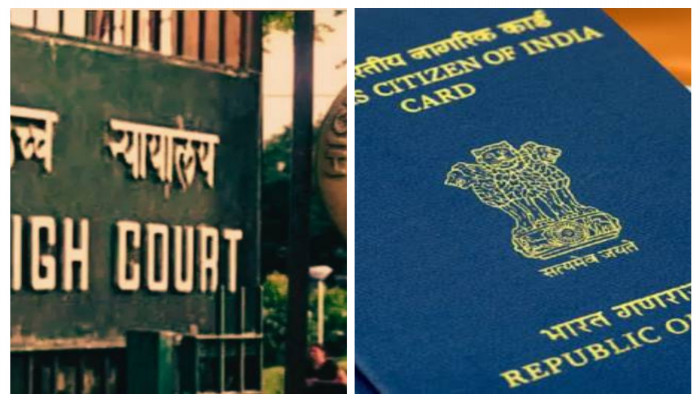HC overturns centre's decision to cancel US professor's OCI card
- In Reports
- 06:53 PM, Nov 13, 2024
- Myind Staff
The Delhi High Court has overturned the Centre's decision to cancel the Overseas Citizen of India (OCI) card of a professor living in the US. The government had accused the professor of being involved in "anti-India activities," but the court ruled that the notice did not provide enough details or evidence to support these allegations.
The court ruled in favour of 80-year-old Khalid Jahangir Qazi, stating that he was unfairly denied a chance to present a proper defence, which is an important part of procedural fairness and natural justice. Balancing individual rights with national security, the high court ordered that before Qazi is allowed to enter the country, the authorities must issue a new notice that clearly outlines the reasons for any restrictions or cancellations, and give him a reasonable time to respond.
"This notice should provide the petitioner with sufficient details to understand the basis of the proposed action and to respond accordingly. "The petitioner shall be given a reasonable opportunity to submit a reply within a specified time frame, after which the government must carefully consider this representation and issue a reasoned decision, under both the statutes, which shall be conveyed to the petitioner. "This process should be completed within six weeks from today," Justice Sanjeev Narula remarked in a verdict passed on November 12.
Qazi, a US citizen with Overseas Citizen of India (OCI) status, went to court to challenge two actions that restricted his entry into India. These actions included the cancellation of his OCI card under the Citizenship Act and a blacklisting order from the Ministry of Home Affairs under the Foreigners Act, which prevented him from entering India. The authorities took these steps because they believed Qazi was involved in activities harmful to India's interests.
Qazi, a Clinical Professor of Medicine at the Jacob School of Medicine and Biomedical Sciences at the University at Buffalo, moved from India to the US in the 1970s and has been living there with his family. He plans to travel to India to visit other family members in Srinagar. The Indian government, represented by Additional Solicitor General Chetan Sharma and senior counsel Farman Ali, explained that the decision to cancel Qazi's Overseas Citizen of India (OCI) card was based on a thorough review of his actions. They stated that reports and intelligence from the Ministry of External Affairs' security agencies indicated that Qazi had been involved in activities against India's sovereignty and integrity.
However, according to the Center's attorney, these operations are still regarded as "secret for the security of India" and cannot be revealed to the petitioner for national security reasons. After reviewing the notice from the authorities, the court stated that it makes a general assertion that the petitioner's conduct are "anti-India" and detrimental to "the sovereignty and integrity of India" without providing any concrete information or proof. "Such broad allegations lack the specificity necessary to afford the petitioner an adequate opportunity to be heard, thus, contravening the procedural safeguards explicitly embedded in the .... Citizenship Act," it said.
The court stated that allowing the state to bypass the protections built into the OCI scheme would reduce the privileges intended for OCI cardholders. This would undermine the purpose of their status under the Citizenship Act, making their protections meaningless. As a result, an OCI cardholder could technically retain their registration but would be unable to exercise the rights and benefits that come with it. The court also noted that the long-term visa rights granted under the OCI scheme would essentially be cancelled without proper procedure, denying the cardholder the benefits they are entitled to. Additionally, the court pointed out that Qazi was not given a fair chance to respond to the reasons for the proposed cancellation, as no specific facts or grounds were provided.
"This lack of clarity deprived the petitioner of a fair chance to present an effective defence, a crucial component of procedural fairness and principles of natural justice. "Consequently, this court finds that the cancellation order cannot withstand judicial scrutiny and is liable to be set aside," it said. The court stated that to fix this issue, the authorities need to send a new show cause notice that clearly explains the reasons for the proposed cancellation, giving the petitioner a fair chance to respond with full understanding.
"While the setting aside of these orders technically allows the petitioner to re-enter the country, the underlying concerns relating to national security and public interest remain significant. Moreover, there can be no doubt that authority to grant or deny entry into the country is a sovereign function and prerogative of the state," it said. The court stated that authorities ought to make a new determination based on the court's findings and the legislative intent underlying the protections granted to OCI cardholders.







Comments